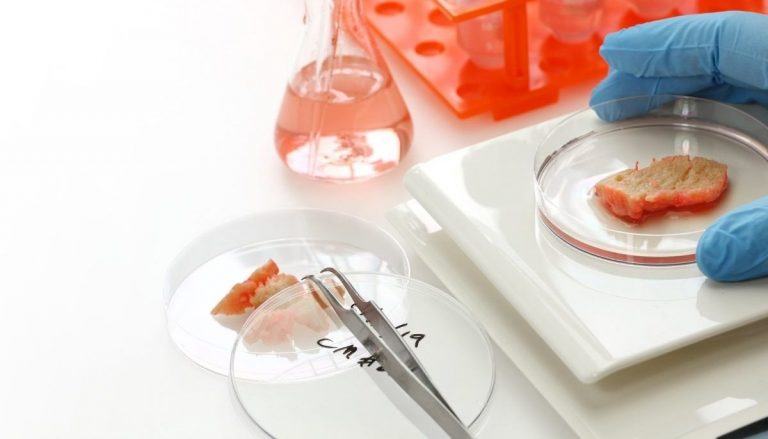FAO urges consideration of future food safety regulations amid sustainability and rising prices concerns

Now is the time to be preparing for the food safety and security issues of tomorrow, according to a new report from the Food and Agriculture Organization of the United Nations (FAO).
From the widespread consumption of jellyfish and edible insects to cell-based meat and other innovative foodtech trends, the organisation’s newest report is a “long-term thinking exercise”, which it hopes will help policy makers anticipate future food issues before they become such.
“We are in an era where technological and scientific innovations are revolutionizing the agrifood sector, including the food safety arena,” says FAO Chief Scientist Ismahane Elouafi.
“It is important for countries to keep pace with these advances, particularly in a critical area like food safety, and for FAO to provide proactive advice on the application of science and innovation.”
According to the report, there are eight broad drivers which will impact the future of food across the world.
These include the more obvious, like climate change, changing consumer behaviour and the circular economy; but also drivers that are increasingly relevant, like food fraud, urban farming and microbiome science.
According to the FAO, all eight will combine and intersect in different ways to produce food safety points that Governments are better off considering sooner, rather than later.
Climate change, for example, will impact weather patterns and thus lead to an increased exposure to contaminants, the report predicts.
“Elevated temperatures, alternation of severe drought periods and heavy rains, soil quality degradation, rising sea levels and ocean acidification, among others, have serious implications for various biological and chemical contaminants in food by altering their virulence, occurrence and distribution,” it says.
Aflatoxins, the FAO gives in example, were traditionally considered a problem mainly in some parts of Africa, but are now established in the Mediterranean because of weather pattern changes. To combat this, the report says robust early warning systems will be key.
In another recently published report, the FAO noted that cereal production in low income countries is expected to decline by 5.2% in 2022 because of extreme weather events – leading to record high prices.
A similar situation has befallen the price of vegetable oils, which rose 8.5%, since January because of increased global demand and recent disruptions in key oil-producing regions – namely the Black Sea area which has been shaken by the Russian invasion of Ukraine.
The FAO reported dairy products also rose in price globally by 6.4%, owing to heavy demand and a lack of production in Western Europe and Oceania.
Cell-based meat and other new food production technologies are ways in which such issues could be overcome. However the FAO says these methods come with their own food safety concerns.
These food products must to be produced under the strictest of conditions, but the report says the use of foetal bovine serum (FBS) in the culture media is one area that could introduce both microbiological and chemical contamination when consumed. However, lab-grown meat start-ups are looking at other growth media options of plant-based origins. Cultivated meat company Mosa Meat has already stopped using FBS.
While there are potential food safety concerns however, the FAO maintains that such innovations could be key to food security in the future.
The fact cell-based meat is produced indoors precludes it from changing climate conditions, and uses comparatively fewer natural resources. Fermentation could also prove to be the way forward for food. Arkeon, an Austrian start-up that uses microbes and fermentation to “grow” proteins, for example, claims to use 99% less land and just 0.01% of the water of traditional meat farming.
Changing consumer habits could also cause several different safety issues to come to light, the FAO says. On the one hand, more people are looking to plant-based meat alternatives, but elsewhere, less common food products like jellyfish, algae and insects are increasingly being consumed.
For the former, the food safety issues will mainly revolve around awareness of allergens not commonly consumed before, the report says. For example, when replacing cow’s milk for almond milk for infants.
Meanwhile the latter has implications surrounding preservation and contamination. Jellyfish, the FAO says, tends to spoil faster than other protein sources, and can serve as vectors for pathogenic bacteria. Similarly, insects can harbour foodborne contaminants and provoke allergic reactions in some people.
For both, information campaigns and a more robust infrastructure surrounding their harvest and product will be crucial to establish proper safety regulations, the report says.
“In a rapidly changing world, foresight is more important than ever,” says the FAO. By conducting this thought experiment, it says it aims to “support countries and regions that lack adequate resources to implement their own foresight programmes”.








